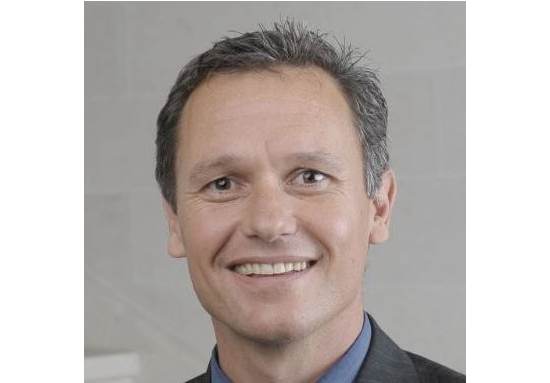On World Cancer Day, the Global Chief Medical Officer at reinsurance giant Swiss Re, John Schoonbee, explores the fast moving and complex disease and how re/insurers like Swiss Re can collaborate to bring significant benefits.
 According to the World Health Organization (WHO), globally, cancer is the 2nd leading cause of death, with 1 in 6 deaths globally being a result of cancer.
According to the World Health Organization (WHO), globally, cancer is the 2nd leading cause of death, with 1 in 6 deaths globally being a result of cancer.
Speaking with Reinsurance News, Schoonbee noted how frequent diagnoses are, underlining the fact that we all know someone who have had or has died from the disease, while the occurrence of this increases with age.
“What lies behind these headlines and is often not shared or fully appreciated, is the arduous journey of suffering, coping, anguish or relief in various combinations, often repeated in cycles over long periods – for both the patient and their families,” explained Schoonbee.
For global reinsurer Swiss Re, the vision is that “we make the world more resilient”, he continued. “Cancer is a huge opportunity to do just that.”
Adding: “It is fast moving and complex, creating new and significant risks for insurers, while creating many ways for us to make the lives of cancer survivors, and the families left behind, better. Below are some of the main areas we are focusing on in order to make insurers, insureds and society as a whole more resilient.”
According to Schoonbee, up to 4 out of 10 cancers are avoidable, with the most significant avoidable risk factor being smoking. While in more developed parts of the world efforts to reduce smoking have been fairly positive, in developing countries it has proved more of a struggle and this, combined with risk factors such as obesity and nutrition are areas the reinsurer is focused on.
“Swiss Re and its collaboration with the British Medical Journal on nutritional research will continue to find answers on how to address nutritional uncertainty related to cancer, and we plan a publication on this in 2020 following a gathering of experts, and will continue dialogue on this topic,” said Schoonbee.
One area that is of concern to insurers and has the potential to be very harmful to an individual, is overdiagnosis, which is a result of early screening.
As Schoonbee explained: “The “common sense” approach might then be to screen as many individuals as frequently as possible. What is often not appreciated though, is that a screening test is not diagnostic nor accurate, and any “positive” test needs further investigations, often invasive, with harmful side effects and psychological impacts.
“It is these harms that impact all those with false positive screening tests, that must be weighed up against the actual survival benefits of diagnosing the smaller subset of true cancers earlier. For some cancers this screening benefit is clear, for many it is not. Driving compliance of beneficial screening programs helps individuals and improves longevity, while educating the public on screening that is perhaps less beneficial, or at least laying out the pros and cons of such screening, allows informed individuals choice.”
As research continues and technology advances at an unprecedented rate, newer, science-fiction-like treatments offer new hope, and brings new ways of fighting the disease.
Schoonbee expanded on this and explained that developing financing solutions for expensive and innovative treatments is an important area for the reinsurer’s life and health business.
“Newer treatments that use molecular biology to block certain cancer pathways, or even modify the DNA of a patient’s white blood cells in order to better detect and kill cancer cells like CAR-T therapies have had great success, and create hope for beating more of this dreadful disease.
“Recently release research on T cells that have a receptor for MR1 which seems to be abnormal only on cancer cells, has created optimism of a pan-cancer treatment strategy. Here’s a great, simple summary of how it works. These treatments are often very “personalized” and typically prohibitively expensive – for the individual, but also for national health systems and even health insurers.
“Creating protection products that can help cover these costs is a challenge and an opportunity for our industry, and key focus of Swiss Re L&H,” he said.
Undoubtedly, the physical and financial aspects of cancer are very challenging, while the diagnosis itself is often overwhelming for the individual.
In addition, there are “myriads of decision points to navigate, including which provider/s to use, and followed by uncertainty regarding the exact diagnosis and treatment options which add a significant additional burden on a patient and their family,” said Schoonbee.
“Being able to offer products that can help with the confirmation of diagnosis and best treatment options, or even paying for those options, can bring significant benefit in order to focus on family and getting better. We are proud to work with providers and offer such services to our clients.
“We will continue to work tirelessly to research, review, publish and educate our insurance clients, while developing products and finding the best solutions that meet the needs to best fight cancer!” he concluded.


